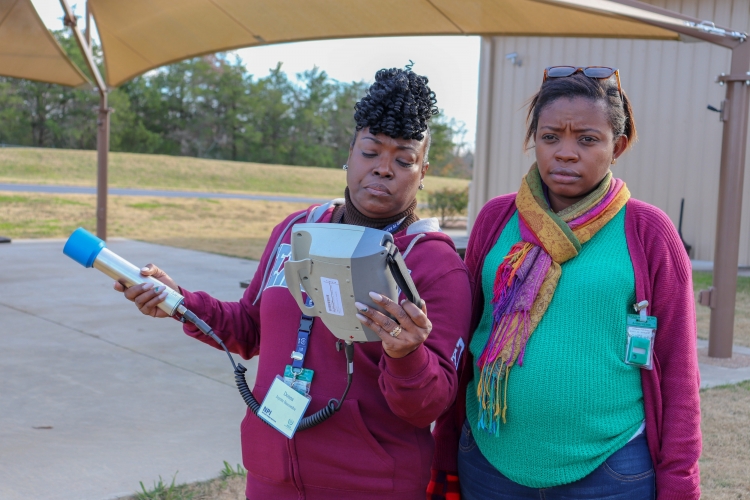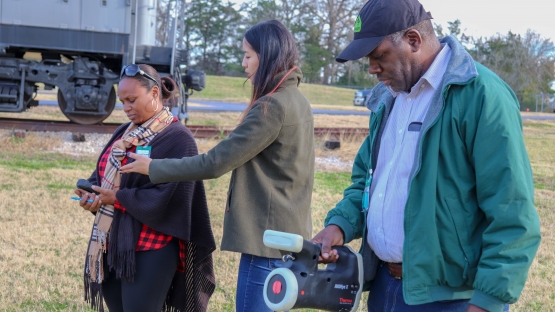COLLEGE STATION, Texas — For the first time ever, the IAEA’s School of Radiation Emergency Management celebrated the certification of trainees from the Caribbean.
The successful completion of the School’s two-week course by the 23 students represents a crucial transfer of knowledge to the participating Caribbean Community (CARICOM) member states.
Reflecting their shared history of collaboration, the IAEA co-organized the training event with the Nuclear Power Institute of Texas A&M University (TAMU), whose campus in College Station, Texas hosted the participating experts and trainees.
An effective response to a national emergency relies upon preparation, and the necessary preparations cannot be made without consistent and comprehensive training.
To help ensure that national authorities are well-trained and well-prepared to respond to a radiation emergency, the IAEA’s Incident and Emergency Center launched the School of Radiation Emergency Management in 2015.
The challenges and obstacles which emerge during a nuclear or radiological emergency can be exceedingly complex, and their resolution depends upon open communication, clearly-defined roles and responsibilities, and above all, on preparation.
The IAEA’s School of Radiation Emergency Management inculcates its students with these fundamental best practices, and teaches them how to develop emergency management systems, how to engage with the public, and when to deploy protective measures.
“This is a very important topic and we hope that this training will contribute to the safety and well-being of the public in the CARICOM countries. We were delighted to host the Agency staff and experts and the participants here in Texas for this event,” explained Kenneth Peddicord, Director of the Nuclear Power Institute.

Trainees of the School of Radiation Emergency Management participate in the ‘Disaster City’ component of the School. (Photo: Texas A&M University)
As an additional benefit, the graduating students will form the core of a new cadre of experts in the Caribbean, capable of managing sustainable emergency preparedness and response (EPR) program based on the IAEA Safety Standards, technical guidelines, EPR tools and training materials.
“This is a positive first step in establishing a professional network of persons who will champion radiological emergency preparedness,” said Sophia Mitchell of the Office of Disaster Preparedness & Emergency Management in Jamaica.
The trainees participated in various activities which demonstrated both the risks associated with ionizing radiation, as well as the tools and methods with which to minimize those risks.
The participants were not only able to visit technical institutions, such as TAMU’s Environmental and Safety Laboratory, their itinerary included a staged emergency exercise at “Disaster City,” a 52-acre training facility which tests the skills and preparedness of emergency responders.
At the Disaster City complex, the collaborative skills, ingenuity and newly-developed emergency response skills of the students were put to the test during a series of hands-on and interactive role-playing scenarios.
Experts and representatives from eight IAEA Member States attended the School, including Antigua and Barbuda, Bahamas, Barbados, Dominica, Guyana, Jamaica, Saint Vincent and the Grenadines and Trinidad and Tobago.
The graduation ceremony took place on December 7, 2018.
SOURCE: IAEA

